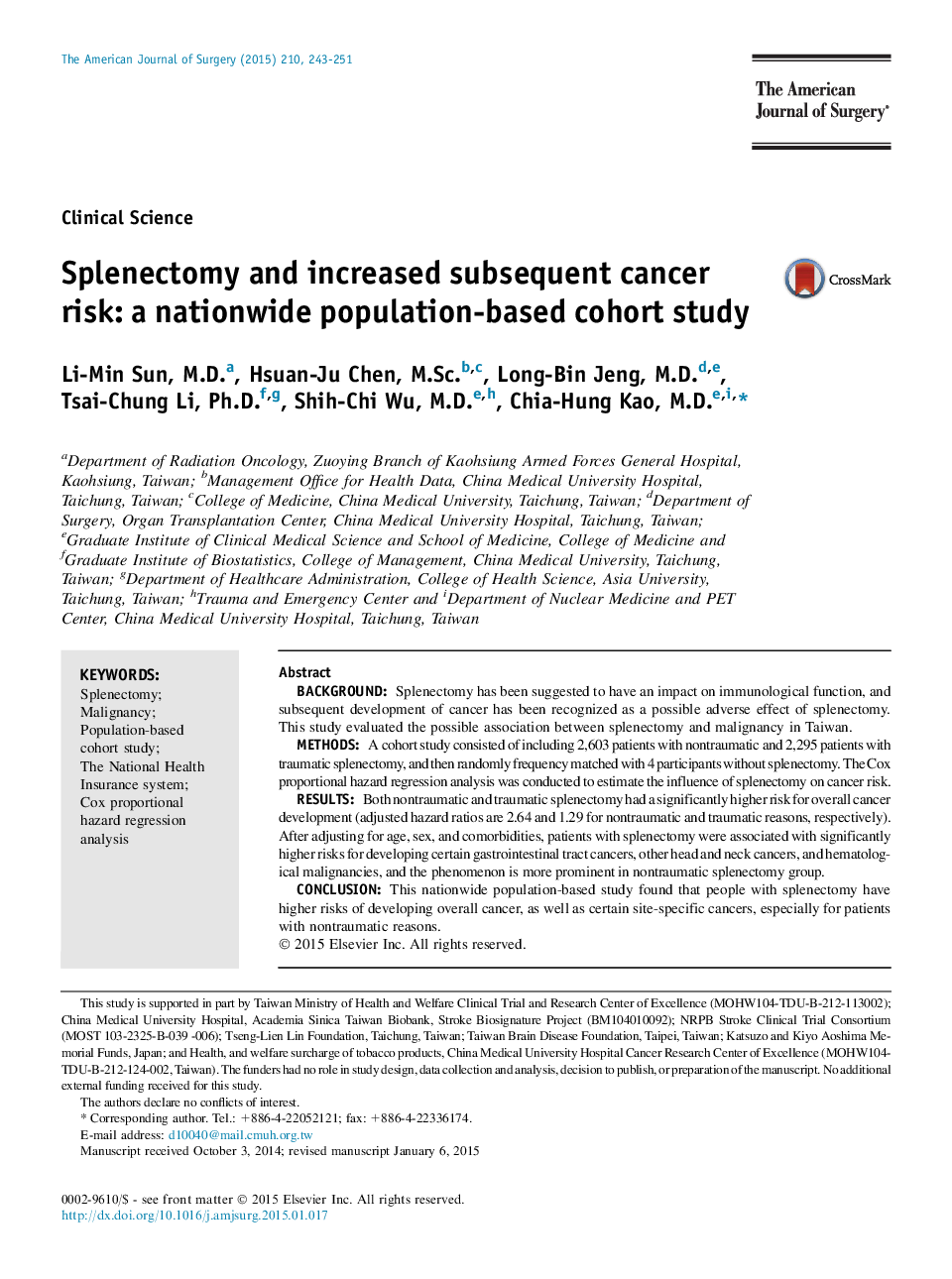| Article ID | Journal | Published Year | Pages | File Type |
|---|---|---|---|---|
| 4278283 | The American Journal of Surgery | 2015 | 9 Pages |
•Subsequent cancer risks were higher in both nontraumatic and traumatic splenectomy patients.•Associated with higher risks for GI, head and neck, hematological, and bladder cancer.•Follow-up years showed various patterns among diverse cancers.
BackgroundSplenectomy has been suggested to have an impact on immunological function, and subsequent development of cancer has been recognized as a possible adverse effect of splenectomy. This study evaluated the possible association between splenectomy and malignancy in Taiwan.MethodsA cohort study consisted of including 2,603 patients with nontraumatic and 2,295 patients with traumatic splenectomy, and then randomly frequency matched with 4 participants without splenectomy. The Cox proportional hazard regression analysis was conducted to estimate the influence of splenectomy on cancer risk.ResultsBoth nontraumatic and traumatic splenectomy had a significantly higher risk for overall cancer development (adjusted hazard ratios are 2.64 and 1.29 for nontraumatic and traumatic reasons, respectively). After adjusting for age, sex, and comorbidities, patients with splenectomy were associated with significantly higher risks for developing certain gastrointestinal tract cancers, other head and neck cancers, and hematological malignancies, and the phenomenon is more prominent in nontraumatic splenectomy group.ConclusionThis nationwide population-based study found that people with splenectomy have higher risks of developing overall cancer, as well as certain site-specific cancers, especially for patients with nontraumatic reasons.
